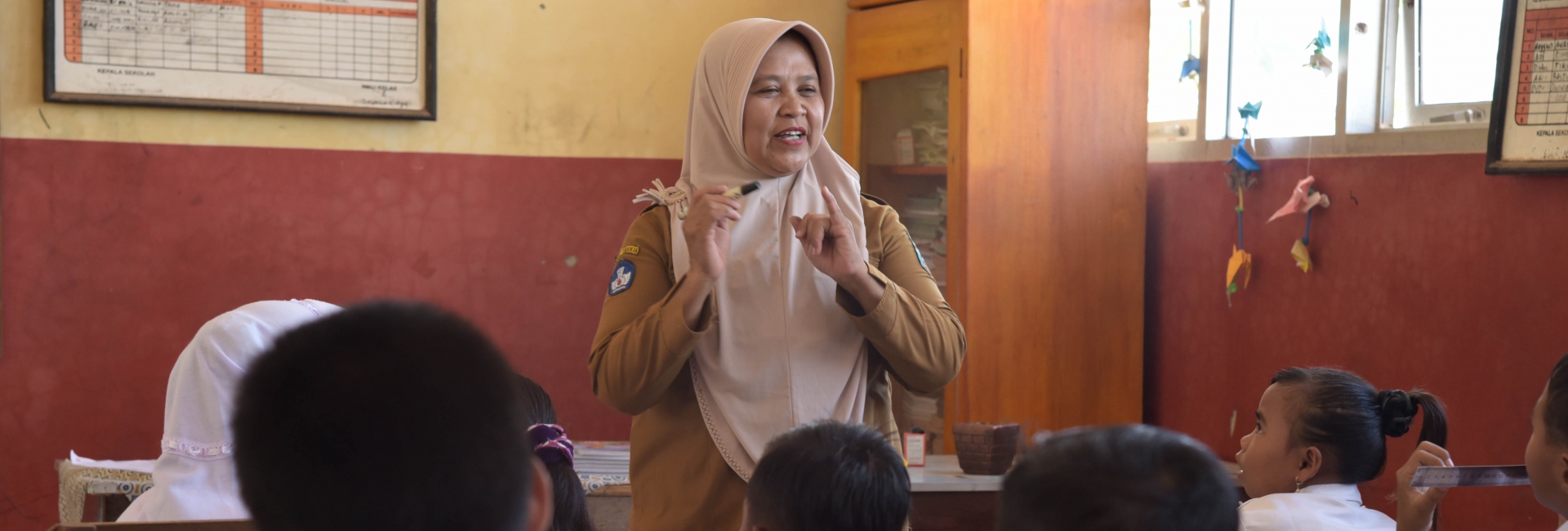This study is part of RISE Programme in Indonesia, a large scale, multi-country research program that seeks to understand how school systems in the developing world can overcome the learning crisis and deliver better learning for all. The study is one of the components in the Reform Area A that evaluates policies of pilot programs related to teachers and teaching, especially on improving student learning outcomes.
Indonesia is still facing great challenges in improving the quality of education in poor and remote areas. In many remote areas, teachers are missing from classrooms and it is affecting student learning outcomes. While the rate of teacher absenteeism has declined over the past decade, the figure remains high in both areas.
Hoping to find solutions to the problem, the National Team for the Acceleration of Poverty Reduction (TNP2K) initiated a pilot project called Kinerja dan Akuntabilitas Guru (KIAT Guru) or Improving Teachers’ Performance and Accountability, in collaboration with the Ministry of Education and Culture. This project aims to reduce teachers’ absence rate through community empowerment and pay-for-performance mechanism. RISE is involved in conducting the endline survey to evaluate the project.
1. To understand the impact of KIAT Guru on teachers’ absence and service quality;
2. To examine the sustainability of the community monitoring mechanism on teachers’ performance after KIAT Guru ended in early 2018
We used a quantitative method utilizing several instruments: student learning assessments (SLA), teacher absence survey (TAS), and survey.
In addition to the SLA and TAS, we collected information (via survey) from:
- school principals;
- teachers;
- a random sample of primary-school-age children from 20 households (from grade 1 to 5, each comprising 4 children) during baseline;
- school committees;
- village heads; and
- user committees.
Publications




